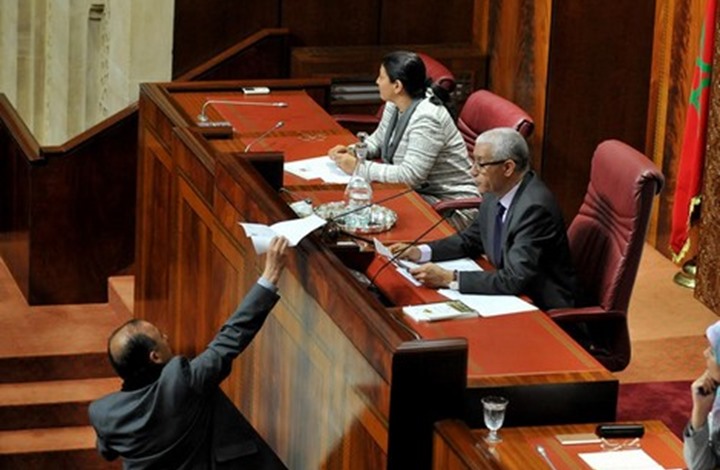[symple_box]
 Professor Tariq Ramadan is a man of no need to introduction. He holds MA in Philosophy and French literature and PhD in Arabic and Islamic Studies from the University of Geneva. In Cairo, Egypt he received one-on-one intensive training in classic Islamic scholarship from Al-Azhar University scholars. Tariq Ramadan is Professor of Contemporary Islamic Studies at Oxford University (Oriental Institute, St Antony’s College ). He is also teaching at the Faculty of Theology at Oxford. He is at the same time a Visiting Professor in Qatar (Faculty of Islamic Studies) and in Morocco (Mundiapolis) and a Senior Research Fellow at Doshisha University (Kyoto, Japan).[/symple_box]
Professor Tariq Ramadan is a man of no need to introduction. He holds MA in Philosophy and French literature and PhD in Arabic and Islamic Studies from the University of Geneva. In Cairo, Egypt he received one-on-one intensive training in classic Islamic scholarship from Al-Azhar University scholars. Tariq Ramadan is Professor of Contemporary Islamic Studies at Oxford University (Oriental Institute, St Antony’s College ). He is also teaching at the Faculty of Theology at Oxford. He is at the same time a Visiting Professor in Qatar (Faculty of Islamic Studies) and in Morocco (Mundiapolis) and a Senior Research Fellow at Doshisha University (Kyoto, Japan).[/symple_box]
We have a date…
The last few days have been revealing. My latest media appearances in France have exposed to television viewers and radio listeners the underhanded game being played by a clique of self-styled journalists. Most of them accuse me of“double speak” while others, without a shred of evidence, have termed my positions “murky,” insinuating that they may know something but cannot prove it. “None is so deaf as he who will not hear.” These days France is suffering from the media (as well as intellectual and political) disease of “double hearing.”
My person aside, their behavior points to an attitude problem in France: a deeply rooted and persistent problem. To discredit me, they must first declare me “controversial”, “ambiguous,” dismiss my words as “cunning,” accuse me of “double speak.” The last two weeks have been no exception. The same strategy has been used to refuse to hear what I have to say, or to destabilize the listening and viewing public when I am allowed to speak. The preferred tactic is not to invite me, or to do so using the time-tested “filter,” “cautioning” viewers and listeners, “alerting” them that “this man” is dangerous and devious…even though on occasion he may say something interesting—which would make him more dangerous still. Rare are those who, in France, have dared to invite me onto their programs without delivering the customary low blow, the snide introduction, the fine dusting of innuendo. Their names are known in France: Moati, Giesbert, Taddéi, Simonin, Marschall and Truchot, Naulleau and Zemmour… But how many other staunch defenders of freedom of expression either do not invite me onto their programs, or have stopped doing so in the face of pressure and criticism.
The parallel with French state institutions and the academic establishment is striking. I teach contemporary Islamic Studies at Oxford, and have been a frequent speaker at the world’s leading universities. Except in France, with its curious “cultural exception” where academics appear to have bought into (and bowed their heads to) the dominant media narrative—which is cause enough for alarm. No academic appearances, lectures cancelled or pressure from the authorities designed to stop me from expressing my views: it’s been going on, month in, month out, for the last twenty-five years. What an insult to French students! Do they lack the intellectual tools to listen, analyze and criticize? Are they less intelligent, or more gullible, than students in other countries? Or is someone afraid of something else; that my message might awaken free consciences?
There are three crucial points to be made, whose implications go well beyond my person:
1. Those Muslims who are invited to speak (on television, radio or other media) are either demonized or regurgitate what the media and the State want to hear. The same warmed-over subjects are rehashed. But failure to deal with these questions in new ways means only one thing: regression. Intellectually and socially, dear journalists, you are driving France backward, and the country’s politicians and intellectuals are only too happy to follow.
2. French Muslims are still seen and stigmatized as “the other” in public debate and in the media. They must constantly justify themselves, are suspect and suspicious; their freedom of expression is limited by the metaphorical gun held to their heads, forcing them to identify themselves physically and intellectually. Come clean! they are told—both in appearance and spirit.
3. The mainstream media, like most French politicians and public intellectuals, today bears the principle responsibility for the normalization of xenophobic and racist speech that reeks of the Extreme Right. They may pretend they keep their distance, but the tone and the substance of public debate, where individuals are stigmatized because of their identity, are having a dangerous impact on France, on its collective psychology and its lack of openness to diversity.
I have said it once and will say it again: I am the tree that hides the forest; the way I am treated by the media and in the academic world shows the depth of the contradictions in France…land of asymmetric liberties. But I remain optimistic; things are bound to change. Even as I write,French women and men of Muslim belief are making themselves heard and defending their rights just as surely as they recognize their responsibilities. They will rebuild a France fully reconciled with the values of liberty and equality. Listen to them! Your continued refusal to do so would be among the worst things that could befall the country. Assuredly you will hear them, and one day you will remember me, with humility and serenity: we have a date!
But today I accuse you, in your overwhelming majority, of unethical behavior; of a failure of professionalism, intellectual freedom and courage. We have a date! The course of events will prove more powerful than your betrayal of the fine values you pretend to uphold.
[symple_box]
 Professor Tariq Ramadan is a man of no need to introduction. He holds MA in Philosophy and French literature and PhD in Arabic and Islamic Studies from the University of Geneva. In Cairo, Egypt he received one-on-one intensive training in classic Islamic scholarship from Al-Azhar University scholars. Tariq Ramadan is Professor of Contemporary Islamic Studies at Oxford University (Oriental Institute, St Antony’s College ). He is also teaching at the Faculty of Theology at Oxford. He is at the same time a Visiting Professor in Qatar (Faculty of Islamic Studies) and in Morocco (Mundiapolis) and a Senior Research Fellow at Doshisha University (Kyoto, Japan).[/symple_box]
Professor Tariq Ramadan is a man of no need to introduction. He holds MA in Philosophy and French literature and PhD in Arabic and Islamic Studies from the University of Geneva. In Cairo, Egypt he received one-on-one intensive training in classic Islamic scholarship from Al-Azhar University scholars. Tariq Ramadan is Professor of Contemporary Islamic Studies at Oxford University (Oriental Institute, St Antony’s College ). He is also teaching at the Faculty of Theology at Oxford. He is at the same time a Visiting Professor in Qatar (Faculty of Islamic Studies) and in Morocco (Mundiapolis) and a Senior Research Fellow at Doshisha University (Kyoto, Japan).[/symple_box]





